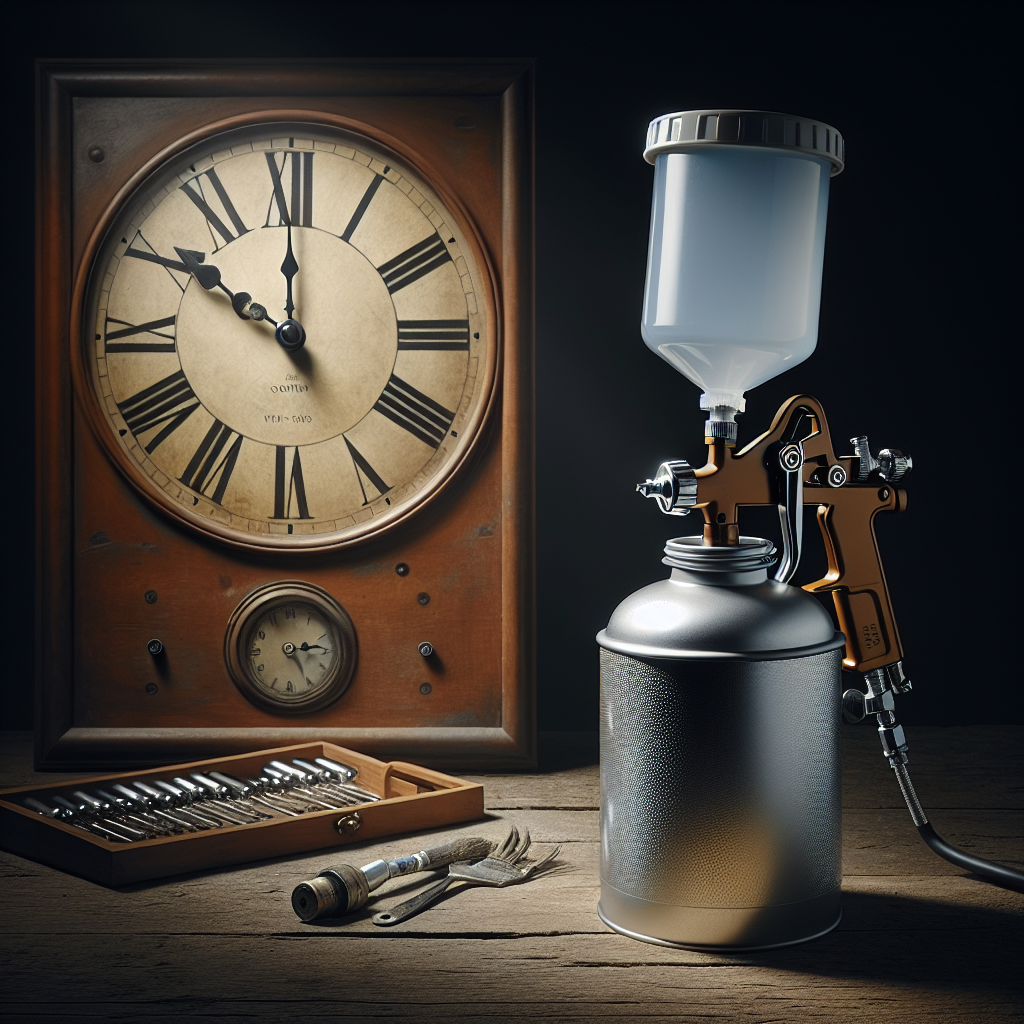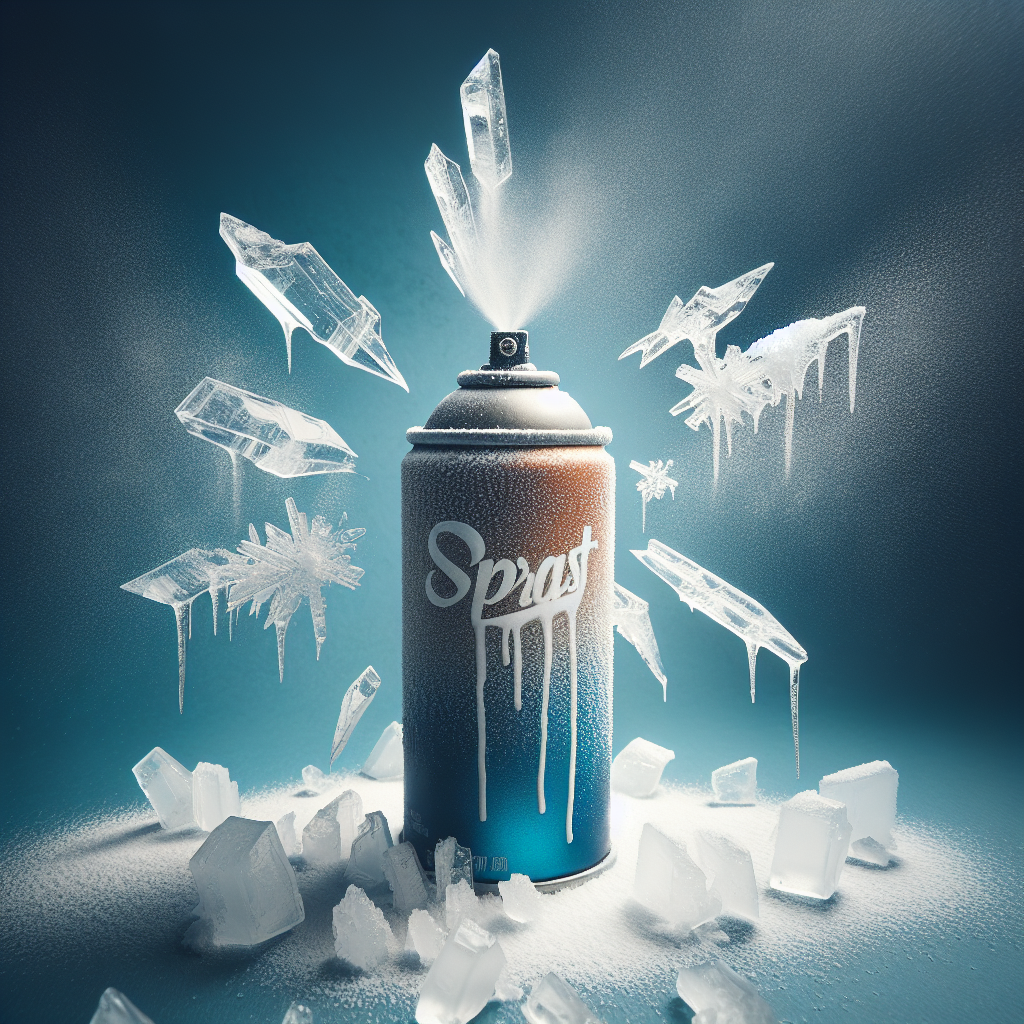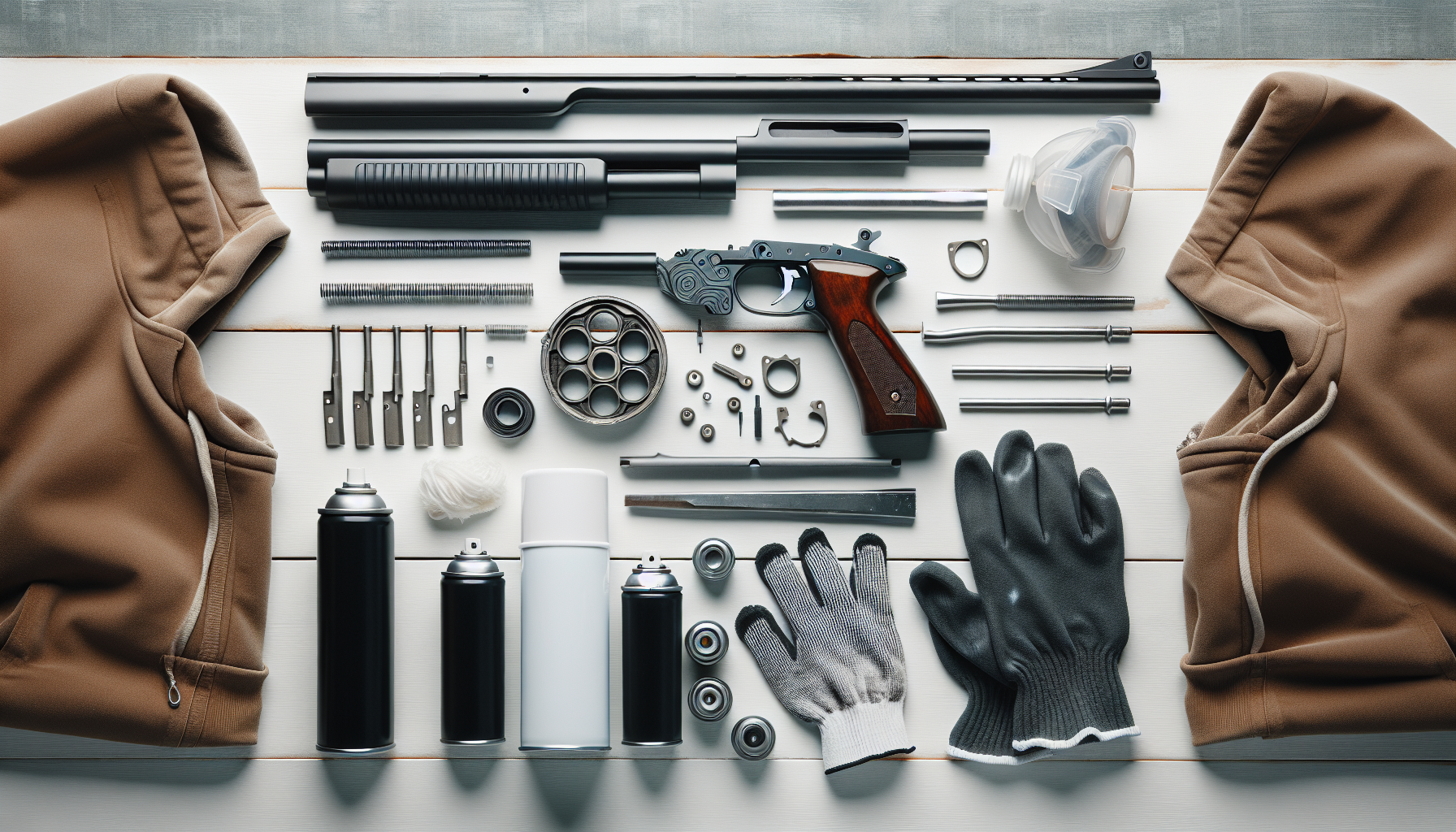Leaving paint in an airless sprayer overnight – a seemingly harmless decision, but have you ever wondered if it could potentially cause problems? In this article, we will explore the impact of leaving paint in an airless sprayer overnight and the potential consequences this may have on the device’s performance. By understanding the risks involved, you will be better equipped to make informed decisions when it comes to the storage and maintenance of your airless sprayer.
Overview of Airless Paint Sprayers
Definition of an airless paint sprayer
An airless paint sprayer is a powerful tool used for efficiently and evenly applying paint on various surfaces. Unlike traditional paint sprayers that rely on compressed air to propel the paint, airless paint sprayers utilize a mechanical pump to forcefully push the paint out of the nozzle. This allows for a faster application process and results in a smoother finish.
How an airless paint sprayer works
Airless paint sprayers consist of a motor, a pump, and a spray gun. The motor powers the pump, which pressurizes the paint and forces it through a small nozzle at high speed. As the paint travels through the nozzle, it atomizes into tiny droplets, creating a fine spray pattern. This spray pattern can be adjusted to suit the desired coverage and texture of the paint application.
Benefits of using an airless paint sprayer
Using an airless paint sprayer offers several advantages over traditional painting methods. Firstly, it allows for a quicker application process, saving both time and effort. Additionally, airless sprayers provide a more consistent and even finish, eliminating brush marks and roller stippling. The high-pressure delivery system also enables the application of thicker coatings, such as latex paints, without the need for thinning. Overall, airless paint sprayers provide a professional-grade finish and are ideal for large-scale painting projects.
Possible Issues with Leaving Paint in an Airless Sprayer Overnight
Drying and clogging of the sprayer nozzle
If paint is left in an airless sprayer overnight, it can start to dry and harden within the nozzle and other spray system components. This can lead to clogging, affecting the spray pattern and causing uneven application or complete blockage.
Reduced paint quality and performance
Leaving paint in the sprayer overnight can also lead to a reduction in paint quality and performance. Over time, the paint may start to separate, with the pigments settling at the bottom and the liquid components evaporating. This can result in a thick, clumpy paint that is difficult to spray evenly, leading to an inferior finish.
Risk of paint spoilage
Another potential issue of leaving paint in an airless sprayer overnight is the risk of paint spoilage. If the paint becomes contaminated with dust, dirt, or other foreign particles, it can affect the paint’s adhesion and overall quality. Additionally, exposure to air and moisture can cause the paint to spoil or develop mold, rendering it unusable.

This image is property of images.unsplash.com.
Factors Affecting Paint Storage in an Airless Sprayer
Type of Paint
Different types of paints have varying drying times and properties. Water-based paints, for example, tend to dry faster compared to solvent-based paints. It is important to consider the specific characteristics of the paint being used when determining the appropriate storage duration in an airless sprayer.
Paint Additives
The use of paint additives can also affect the storage time of paint in an airless sprayer. Additives such as flow improvers or retarders can extend the drying time, allowing for a longer storage period. Conversely, certain additives may accelerate the drying process, requiring the paint to be cleaned out of the sprayer more frequently.
Manufacturer’s Recommendations
The manufacturer’s recommendations should always be followed when it comes to storing paint in an airless sprayer overnight. Each sprayer may have specific guidelines and limitations, so it is crucial to consult the user manual or contact the manufacturer for information on paint storage.
Environmental Conditions
The environmental conditions in which the airless sprayer is stored can significantly impact the paint’s longevity. Extreme temperatures, excessive humidity, or direct sunlight can accelerate the drying or spoilage of paint. It is advisable to store the sprayer in a cool, dry, and controlled environment to minimize these risks.
Best Practices for Leaving Paint in an Airless Sprayer Overnight
Thoroughly clean the sprayer before use
Before leaving paint in an airless sprayer overnight, it is essential to thoroughly clean the sprayer. Any residual paint or debris left in the system can contaminate the stored paint and affect its quality. Cleaning the sprayer ensures that the paint is stored in a clean environment, minimizing the risk of clogs or spoilage.
Use a properly sized tip and filter
Using a properly sized spray tip and filter is crucial for optimal paint flow and performance. The tip and filter should match the viscosity of the paint being sprayed, allowing for a smooth and even application. When leaving paint in the sprayer overnight, ensure that the tip and filter are cleaned and free from any paint residue for future use.
Consider using paint additives
Adding paint additives, such as preservatives or stabilizers, can extend the storage life of paint in an airless sprayer. These additives help prevent drying, clumping, and spoilage, ensuring the paint remains usable even after extended periods of storage. It is important to follow the manufacturer’s instructions when using paint additives to avoid any adverse effects on the paint or sprayer.
Utilize proper storage techniques
Proper storage techniques are essential for preserving the quality of paint in an airless sprayer. Paint should be stored in a tightly sealed container to minimize air exposure. If the sprayer has a dedicated storage compartment, ensure that it is clean and free from any paint residue before placing the sprayer in it. Additionally, protect the sprayer from extreme temperatures, humidity, and direct sunlight to maintain the paint’s integrity.
Follow manufacturer’s guidelines
Always refer to the manufacturer’s guidelines for specific instructions on storing paint in an airless sprayer overnight. The manufacturer will provide valuable insights on the recommended storage duration, cleaning procedures, and any additional precautions to take. Following these guidelines will help ensure the longevity of both the paint and the sprayer.

This image is property of images.unsplash.com.
Cleaning and Maintenance After Leaving Paint in an Airless Sprayer Overnight
Flush the sprayer with appropriate solvent
After leaving paint in an airless sprayer overnight, it is crucial to flush the system with an appropriate solvent. The solvent helps remove any residual paint and prevents clogs or buildup in the spray gun, hose, and pump. Consult the paint manufacturer or the sprayer’s user manual to determine the recommended solvent for cleaning.
Remove and clean the nozzle, tip, and filter
The nozzle, tip, and filter are critical components that require thorough cleaning after leaving paint in the sprayer overnight. Remove these parts and soak them in the appropriate solvent, using a brush or cloth to remove any paint residue. Pay special attention to the nozzle as it is prone to clogs and should be completely free from any obstructions.
Inspect for any clogs or debris
While cleaning the sprayer, carefully inspect all components for clogs or debris. Check the hoses and pump for any blockages and remove them as necessary. Any clogs or debris left in the system can affect the paint flow and result in inconsistent spray patterns.
Store the sprayer in a clean and dry place
After cleaning the airless sprayer, ensure that it is stored in a clean and dry place. Protect it from dust, dirt, and any potential contaminants that may affect its performance. Storing the sprayer in a dedicated storage case or covering it with a dust cover can provide an added layer of protection.
Benefits of Properly Cleaning and Storing Airless Sprayers
Extends the lifespan of the sprayer
Proper cleaning and storage practices significantly contribute to the longevity of airless sprayers. By removing paint residue and preventing clogs, the sprayer’s components can function optimally for an extended period. This reduces the need for frequent repairs or replacements, ultimately saving time and money.
Prevents clogging and paint wastage
Regular cleaning and storage of airless sprayers prevent clogs and blockages, ensuring a smooth and consistent paint flow. Clogs can lead to uneven application and downtime for cleaning, resulting in wasted paint. Proper maintenance minimizes the chances of clogging, allowing for a more efficient painting process with minimal paint wastage.
Maintains consistent paint application
Clean and well-maintained airless sprayers deliver consistent paint application, resulting in a professional finish. By removing any contaminants or residue from previous paint jobs, the sprayer can effectively and evenly distribute the paint onto the surface. This consistency is vital for achieving the desired aesthetic and avoiding time-consuming touch-ups.
Reduces the risk of equipment malfunction
Regular cleaning and proper storage significantly reduce the risk of equipment malfunction or failure. Mechanical issues, such as pump failure or nozzle blockages, can be prevented by keeping the sprayer clean and free from paint residue. By maintaining the sprayer in optimal condition, the risk of unexpected breakdowns during painting projects is minimized.

This image is property of images.unsplash.com.
Common Mistakes to Avoid When Leaving Paint in an Airless Sprayer Overnight
Leaving paint in the sprayer for too long
One common mistake is leaving paint in the airless sprayer for too long. It is important to follow the manufacturer’s recommendations and avoid storing paint in the sprayer for an extended period. Leaving paint in the sprayer for too long can lead to paint spoilage, clogging, and reduced performance.
Neglecting to clean the sprayer before storage
Failing to clean the airless sprayer before storage is another mistake to avoid. Any paint residue left in the sprayer can result in clogs and affect the quality of future paint applications. Taking the time to thoroughly clean the sprayer after each use ensures that it remains in optimal condition for the next project.
Using the wrong type of solvent for cleaning
Using the wrong type of solvent for cleaning the airless sprayer can be a costly mistake. Different paints require specific solvents for removing residue effectively. Using an incompatible solvent can damage the sprayer and compromise its performance. Always consult the paint manufacturer or sprayer’s user manual to determine the appropriate solvent for cleaning.
Storing the sprayer in improper conditions
Improper storage conditions can have a detrimental effect on the airless sprayer and the paint inside it. Storing the sprayer in extreme temperatures, high humidity, or direct sunlight can lead to drying, spoilage, or damage to the sprayer components. It is important to store the sprayer in a clean, dry, and controlled environment to maintain its quality.
Frequently Asked Questions about Leaving Paint in an Airless Sprayer Overnight
Is it okay to leave water-based paint in an airless sprayer overnight?
Leaving water-based paint in an airless sprayer overnight is generally not recommended. Water-based paints tend to dry quickly, and leaving them in the sprayer for an extended period can lead to clogging and affect the paint’s quality. It is best to clean the sprayer thoroughly after each use and avoid storing water-based paint overnight.
Can solvent-based paint be left in an airless sprayer overnight?
Solvent-based paint can be left in an airless sprayer overnight, but it is still advisable to clean the sprayer thoroughly after each use. Solvent-based paints are generally more forgiving and have a longer drying time compared to water-based paints. However, prolonged storage without proper cleaning can still lead to clogging or deterioration of the paint and sprayer.
How long can paint be left in an airless sprayer without causing issues?
The duration of paint storage in an airless sprayer without causing issues can vary depending on several factors, including the type of paint, additives used, and environmental conditions. In general, it is best to avoid leaving paint in the sprayer overnight, as it can lead to drying, clogging, or spoilage. Following the manufacturer’s recommendations and cleaning the sprayer after each use will help prevent potential issues.
Does leaving paint in an airless sprayer affect its warranty?
Leaving paint in an airless sprayer overnight does not typically affect the warranty of the sprayer itself. However, any damage or issues that arise from improper maintenance or neglect, such as clogging or impaired performance, may void the warranty. It is important to follow the manufacturer’s guidelines for cleaning, maintenance, and storage to ensure the warranty remains valid.

Conclusion
Proper care and maintenance of airless paint sprayers, including the appropriate handling of paint storage, are vital for achieving optimal performance and longevity. Leaving paint in an airless sprayer overnight can lead to a range of issues, from clogs and reduced paint quality to equipment malfunction. By following best practices, such as thoroughly cleaning the sprayer before use, using the correct tip and filter, and employing proper storage techniques, painters and contractors can ensure consistent paint application and protect their investment in the airless sprayer. Remember, consult the manufacturer’s recommendations and adhere to specific paint and additive requirements for the best results.



